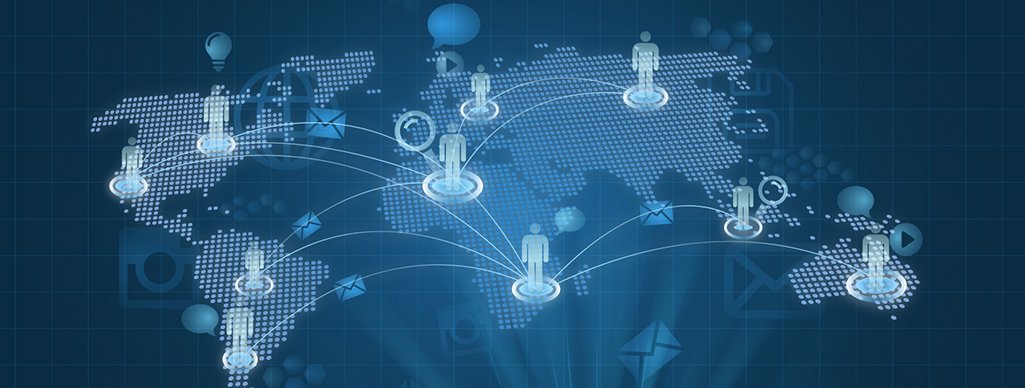
Akshay Kumar Garg, Officer (Lrn. & Dev.), Barauni Refinery, IOCL
gargak1@indianoil.in
I am a data enthusiast with 5 years of diverse experience across various industries. Alongside my passion for data, I am a strong advocate for Diversity and Inclusion and have a keen interest in Human Resource Development. My educational background includes an MBA in Marketing and HR from IIM Lucknow and a degree in Electronics and Electrical Engineering.

In ancient Greece, the philosopher Plato spoke of the mythical city of Atlantis, a utopia where advanced knowledge and technology coexisted harmoniously with human development. Though fictional, this story offers a timeless lesson: the greatest civilizations are those that effectively harness knowledge and innovation. Fast forward to the 21st century, we stand at the cusp of another transformative era, driven by the relentless advancement of artificial intelligence (AI) and machine learning (ML). This technological revolution is reshaping industries, altering job markets, and redefining human capabilities.
In this context, a pressing question emerges: “What about you?” As machines rapidly learn and evolve, it becomes crucial for humans to keep pace. Integrating AI and ML into everyday life and work environments is not just about automating tasks; it is about augmenting human potential and redefining what it means to learn and work in the modern world.
The capabilities of AI and ML have grown exponentially, driven by vast amounts of data, powerful computational resources, and sophisticated algorithms. These intelligent systems are not only performing routine tasks but are also driving innovation and solving complex problems previously thought to be the exclusive domain of human intellect. From natural language processing to predictive analytics, machines are mastering skills at an unprecedented pace.
However, this rapid technological advancement presents a dual challenge: while machines are becoming smarter, there is an urgent need for humans to continuously upgrade their skills. The World Economic Forum predicts that by 2025, 50% of all employees will need reskilling due to the adoption of new technologies. This underscores the necessity for lifelong learning and the development of a mindset geared towards continuous improvement.
In this article, we explore the evolving landscape of AI and ML, the necessity for human adaptation, and the importance of lifelong learning. We will delve into strategies for maintaining relevance in an AI-driven world, the symbiotic relationship between human and machine learning, and how leveraging AI can enhance human educational experiences. As we stand on the brink of this new era, it is imperative to ask ourselves: Are we keeping up? The rise of intelligent machines calls for a parallel evolution in human learning and skill acquisition, ensuring that we, too, continue to grow and thrive in this rapidly changing world.
Understanding the Rise of Intelligent Machines
The rise of intelligent machines, driven by advancements in artificial intelligence (AI) and machine learning, has been nothing short of revolutionary. Over the past decade, AI has transitioned from a niche area of research to a mainstream technology with profound implications across various sectors. According to the Artificial Intelligence Index Report 2024 by Stanford University, AI systems have achieved remarkable progress, often surpassing human performance in tasks such as reading comprehension, image classification, and complex problem-solving. This report highlights the rapid pace of AI development, noting that benchmarks for assessing AI capabilities are becoming obsolete much faster than before. Furthermore, a study published in Nature emphasizes the exponential growth in AI and robotics research.
The number of AI-related papers in high-quality journals has tripled over the past decade, reflecting the increasing importance and application of AI technologies. This surge in research is not limited to a single country; leading nations like the United States, China, and the United Kingdom are at the forefront of AI innovation. Top consulting firms have also documented the significant impact of AI on businesses. According to a report by Deloitte, the global AI market is projected to grow from $300 billion in 2024 to $1.3 trillion by 2032, driven by a compound annual growth rate (CAGR) of over 40%. This growth is fueled by AI’s potential to revolutionize industries, such as healthcare, finance, and manufacturing through enhanced efficiency, predictive analytics, and automation.
Capgemini also highlights the increasing demand for AI services, noting that their AI-focused offerings have seen substantial growth. In the first quarter of 2024 alone, Capgemini reported revenues of $5.9 billion from AI-related services, underscoring the technology’s critical role in digital transformation.
The Workforce Revolution: Navigating the AI Era
The rise of intelligent machines is transforming the global workforce, presenting both remarkable benefits and significant challenges. As AI, ML and automation become more prevalent, their impact on jobs, skill development, and organizational dynamics is profound and multifaceted.
One of the most pressing concerns is the potential for job displacement. According to a report by McKinsey & Company, up to 800 million jobs could be lost to automation by 2030. This shift could lead to significant economic and social upheaval, particularly for workers in roles most susceptible to automation. However, AI& ML also creates new job opportunities, particularly in areas requiring advanced technical skills. For instance, there is a growing demand for AI specialists, data scientists, and cybersecurity experts. Moreover, AI can enhance job satisfaction by taking over mundane and hazardous tasks, allowing human workers to focus on more complex and creative activities.
AI & ML is not just about replacing jobs; it’s also about creating new ones. The World Economic Forum predicts that AI could create 97 million new jobs by 2025. These roles will likely be in fields, such as AI development, data analysis, and cybersecurity. Additionally, AI can help businesses innovate and create new products and services, leading to further job creation. For example, AI-driven insights can lead to the development of innovative solutions, efficient products, and customer service enhancements.
AI is revolutionizing learning and development (L&D) within organizations. Traditional L&D methods often fall short of keeping pace with rapidly evolving skill requirements. AI, however, offers personalized learning pathways, continuously updated materials and highly realistic training simulations. For example, AI-powered platforms can identify skill gaps and tailor training programs to individual needs, ensuring that employees stay relevant in a fast-changing industry. In the oil and gas sector, AI-driven training programs are particularly beneficial. They can simulate real-world scenarios, providing hands-on experience without the associated risks. This approach not only enhances learning outcomes but also improves safety and operational efficiency.
AI’s integration into the workforce is transforming organizational dynamics. Companies are leveraging AI & ML to optimize operations, reduce costs, and enhance safety. For instance, AI algorithms can monitor equipment and alert maintenance teams to potential issues before they escalate, reducing the risk of accidents and downtime. Additionally, AI can analyze vast amounts of data to provide insights that support informed decision-making, such as identifying optimal drilling locations. However, the adoption of AI & ML also presents challenges. There are concerns about data security and privacy, particularly given the sensitive nature of information in many industries. Organizations must invest in robust cybersecurity measures to protect their data and maintain trust with stakeholders.
Embracing the Future: The Urgent Call for Adaptation
As we are witnessing the dawn of a new age defined by intelligent machines, the need for adaptation has never been more critical. The rapid advancements in AI and automation are reshaping industries and redefining the skills required to thrive in the modern workforce. To navigate this transformative landscape, individuals and organizations must embrace continuous learning and proactive adaptation.
Lifelong Learning, A Necessity, Not a Choice: In a world where technology evolves at an unprecedented pace, the concept of lifelong learning is no longer optional. According to the World Economic Forum, 50% of all employees will need reskilling by 2025 as the adoption of technology increases. This shift underscores the importance of developing a mindset geared towards continuous improvement and adaptability. Workers must be willing to acquire new skills and knowledge to stay relevant in their fields. Online courses, professional certifications, and on-the-job training are becoming essential tools for career advancement.
Bridging the Skills Gap: The rise of AI& ML has highlighted a significant skills gap in the workforce. A report by PwC indicates that 79% of CEOs are concerned about the availability of key skills. To bridge this gap, educational institutions and businesses must collaborate to create robust training programs that align with industry needs. This includes integrating AI and data science into curricula and offering hands-on experience with cutting-edge technologies. By fostering a culture of innovation and learning, organizations can ensure their workforce is equipped to handle the challenges and opportunities presented by AI.
Human-AI Collaboration: The New Paradigm: The future of work lies in the collaboration between humans and AI. Rather than viewing AI& ML as a threat, we should see it as an enabler that can augment human capabilities. For instance, AI can handle repetitive and data-intensive tasks, freeing up human workers to focus on strategic and creative endeavours. This symbiotic relationship can lead to increased productivity and innovation. According to a study by Accenture, companies that successfully integrate AI& ML into their operations could see a 38% increase in profitability by 2035.
Ethical Considerations and Responsible AI: As we integrate AI& ML into various aspects of our lives, it is crucial to address the ethical implications. Ensuring that these systems are transparent, fair, and accountable is paramount. Organizations must adopt ethical guidelines and frameworks to govern the development and deployment of AI technologies. This includes addressing biases in AI algorithms, protecting user privacy, and ensuring that AI is used for the greater good. By prioritizing ethical considerations, we can build trust in AI and harness its potential responsibly.
Final Thoughts
The transformative potential of AI & ML is undeniable. It promises to enhance operational efficiencies, drive innovation, and open new avenues for growth. However, the key to leveraging them effectively lies in our ability to adapt and evolve. This involves fostering a culture of continuous learning, investing in workforce development, and implementing ethical frameworks to ensure responsible AI usage.
From a human resources perspective, the onus is on organizations to support their workforce through this transition. By providing robust reskilling and upskilling programs, promoting human-AI collaboration, and ensuring inclusive practices, organizations can not only safeguard jobs but also create a more dynamic and resilient workforce.
The critical takeaway is that AI & ML should be viewed as an augmentation tool rather than a replacement. The synergy between human ingenuity and machine intelligence holds the promise of unprecedented advancements. Yet, this synergy can only be realized if we approach AI integration with foresight, responsibility, and a commitment to ethical practices.
References:
- World Economic Forum. (2020). The Future of Jobs Report
- Artificial Intelligence Index Report 2024 by Stanford University
- Nature Journal Article on AI and Robotics Research Growth
- Deloitte Report on The Global AI Market
- McKinsey & Company Report on Job Displacement
- Accenture. (2020). “AI in the Oil and Gas Industry: Driving Operational Efficiency.
Posted in HR Technology | No Comments »
Recent Articles
- The Communication Network: Public Relations in the Digital Era
- Machines Are Learning, How About You?
- Positioning Exponential Technology – Leveraging for Effective Industrial Relations
- AI – Not Just Another Tech
- How AI and Automation are Redefining Talent Acquisition
- HR Analytics – Enabler for Strategic Business Partnership
- Machine Learning applications in the domain of HR Analytics
- Pandemic provided the tailwind to HR technology sector
- Gamification using Digital Twin for Leadership Management
- HR Tech-Options to evaluate
- Metaverse & Future Workplace
- Beat Burnout by investing in HR Technology and Automation
- How to Harness the Power of AI in HRM
- Driving innovation & Experimentation through Digital HR Transformation & Building Employee Experience
- HR Tech Trends
- Decoding the ‘Digital Personal Data Protection Bill 2022’
